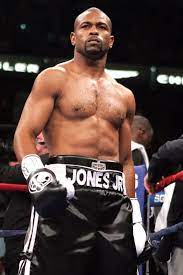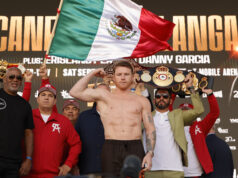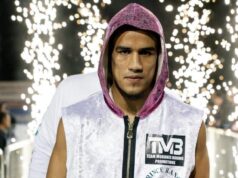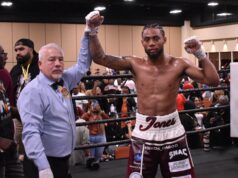
By Norm Frauenheim
Amateur boxing is talking reform. Again. With another Olympics just a few weeks away, the sport’s international ruling body says it plans far-reaching change for what it promises will be “a fair fight.’’
Fair enough. Easy to do, too. The body, AIBA, took an opportunity to grab the bully pulpit this week with an international news conference less than a month before opening ceremonies. Trouble is, AIBA isn’t supposed to have anything to do with boxing at the delayed Tokyo Games.
The Olympic czars in Switzerland have ordered AIBA to get its house in order. That means cleaning up a reported $16-million debt, a mob-like history of bureaucrats and bosses and decades full of corrupt judging.
Olympic boxing makes the scarred pro game look like Mister Clean. Hard to do. Yet, it hangs on, pushed to the edge of the Olympic fringe because of its long history and its universality. Everybody fights, and everybody has been fighting since at least the ancient Greeks. It’s there, in spite of itself.
But it’s not clear how many people watch anymore. Exasperation at boxing’s failure to root out the corruption forced NBC to drop it as a featured part of its telecast schedule. It’s embarrassing and has been since Roy Jones Jr. got robbed 33 years ago in Seoul. The world saw it. Then, boxing still generated an audience, one that remembered 1976 and a Montreal Olympics that starred Sugar Ray Leonard.
The Jones theft, a decision that cost him the gold medal, might as well be forever framed in yellow-crime tape. It was defining, for him and the Olympics. It was no coincidence, perhaps, that Jones was part of the news conference from Lausanne. He appeared alongside AIBA’s new president, Umar Kremlev, a Russian. Remember, Jones is Russian, too. At least, he has a Russian passport. The American was granted citizenship by Vladimir Putin in 2015.
Whatever the connection, Jones belonged there. Despite all of his great moments in the pro ring and his long run atop the pound-for-pound ratings, he will be remembered for what happened at the 1988 Olympics. His voice is the key to any discussion about Olympic boxing and its troubled path to irrelevance. Say it in Russian. Say it In English. Roy Jones Jr. said it all this week.
“Whenever I see that, it feels like yesterday,’’ Jones said of the photo that shows the ref raising South Korean Park Si-hun’s hand in victory for the light-middleweight gold. “And not in a great way.
“All the judges that were part of that decision were crooked. They’ve all been banned. And I know they were not the only ones.
“So, I’ve said it before and I’ll say it again. The judges were crooked. The whole world knows it. Even my opponent agrees I won the fight. But how come I don’t have my gold medal? How can you beat someone so bad and not get the gold medal, and they don’t go back and fix it? Because I’m still here. And I still earned it. And we have to make sure nothing like that ever happens again.’’
The key is in Jones question: Why-oh-why doesn’t he have the gold? More than three decades have come and gone. Jones was awarded the Val Barker Trophy, the award for being the most outstanding boxer at the Seoul Games. In 2002, the IOC honored him with something called The Olympic Order.
But never the gold.
Kremlev said this week that he wants Jones to finally get that gold. For Olympic boxing, it’s a beginning, really the only beginning.
All of the talk about reform is hollow – Fool’s gold – until Olympic boxing gives Jones his moment on the podium’s top pedestal. In the years since 1988, enough has been revealed to give not only Jones the gold. Give one to Michael Carbajal, too. Carbajal’s loss to Bulgarian Ivailo Hristov was just the beginning of rigged judging in a scheme that included an officer in the former East German police force (Stasi). Years after the Seoul Games and subsequent collapse of East Germany, Stasi files were found to include allegations that the fights were fixed and bribes were paid.
Carbajal, of Phoenix, fought and lost on Oct. 1. Jones lost the next day. The night before the Carbajal fight, talk circulated that the fix was in. A shouting match erupted between the American coaching staff and members of the committee responsible for assigning the judges.
Stan Hamilton, a judge-referee from Knoxville, Tenn., told the Los Angeles Times about a contentious 2 a.m. meeting. Hamilton told sportswriter Earl Gustkey that two judges, Hiouad Larbi of Morocco and Alberto Duran of Uruguay, were supposed to have been suspended for questionable work early in the Olympics. He said neither was eligible to work any gold-medal bout. But they worked both the Carbajal and Jones losses – five judges-to-zero against Carbajal and 3-2 against Jones.
Before the meeting ended, Hamilton said, committee member Vladimir Gordienko, of the former Soviet Union, left and ran into Jim Fox, then executive director of the U.S. amateur federation.
“Gordienko was angry,” Hamilton said. “He found Fox and told him: ‘You will lose, 5-0, to the Bulgarian.’ ‘’
That’s what happened. First, Carbajal, then Jones, both losing with judges working while suspended. Carbajal and Jones moved on, both to Hall-of-Fame careers. Neither Hristov nor Park fought again, amateur or pro.
It was the fix that never got fixed. Until it does, there will never be a new beginning for Olympic boxing.
A fair fight is possible, but first give Jones and Carbajal the gold they fairly won.Attachments area










